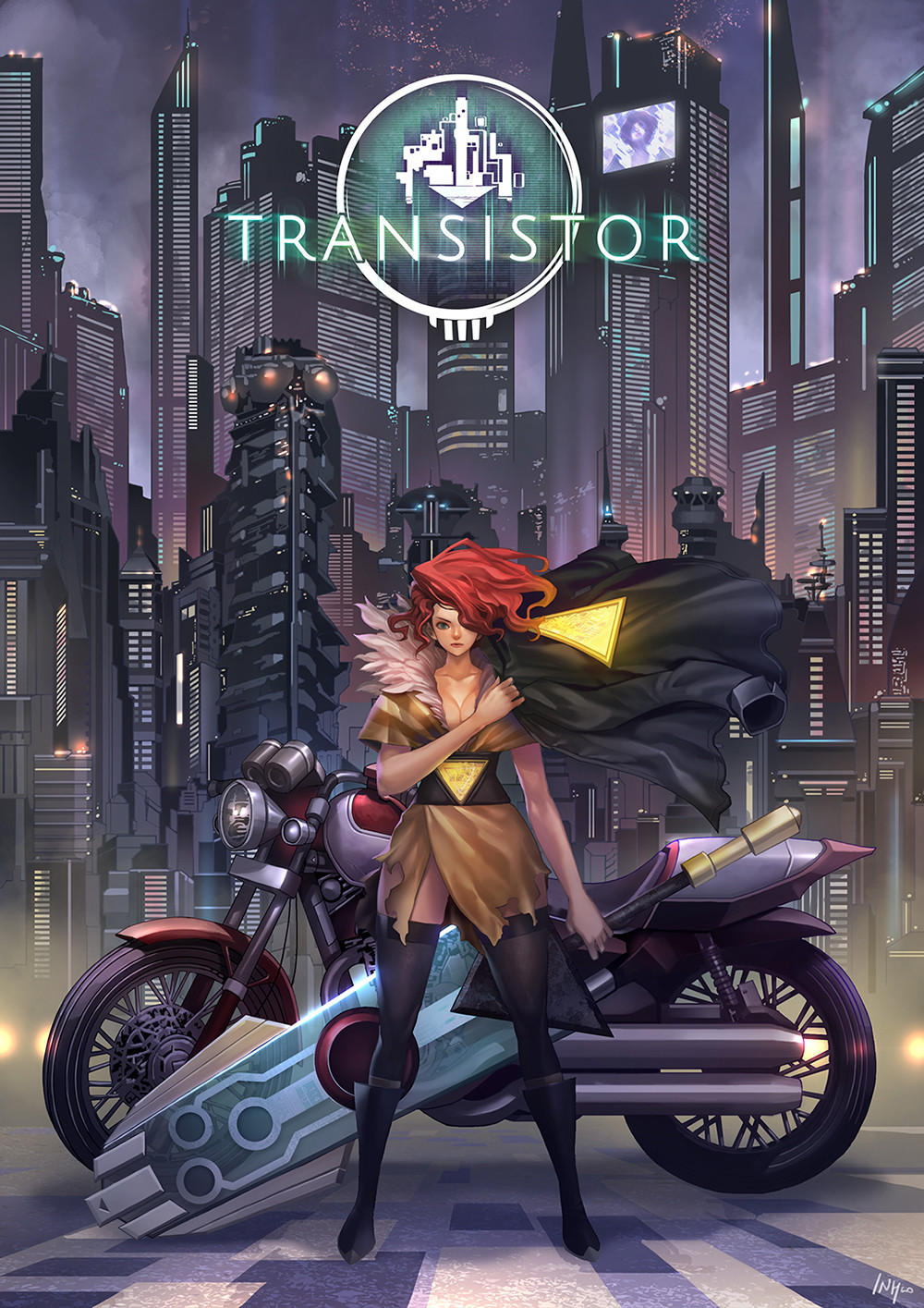
"Transistor" by Inhoo
A. Johanna DeNiro of Sub-Q looks at the work of storied IF creator, Rybread Celsius.
Allegra Frank explains how Fragments of Him offered her catharsis after the shock of losing someone by confronting pain head-on.
Brent Ables contemplates the connection between Dark Souls and art history.
C.T. Casberg asserts that Dark Souls is best enjoyed with others, and that the staggered release undermined its social qualities.
Extra Credits reflects on how avatar outfits affect our problem solving abilities.
From the makers of Honest Movie Trailers, Honest Game Trailers. Their takedown of the ludicrous story behind Kindgom Hearts series is spot on.
In History Respawned, an Islamic scholar plays a game about the Iranian revolution.
Keith Stuart writes about how JG Ballard and Sharon Stone inspired Her Story.
Mathias Fuchs traces the cultural history of games and work back to the 18th Century in an excellent article at Kinephanos.
Stephen Beirne of Normally Rascal argues that the on-going debate over the difficulty of Dark Souls are about more than game balance. Meanwhile, Jorge Albor discusses the built-in Easy Modes of Dark Souls.
Suriel Vazquez offers a history of game guides through a series of interviews.
At Vice, Daniel Oberhaus visits Genome Island, a location in Second Life dedicated to simulating genetic resarch which has been in action since 2007.
The world of serious journalism is now getting into the virtual reality game. This week the Guardian brings us the experience of solitary confinement.
YouTube user MonotoneTim defeats Ghoma in Legend of Zelda: Ocarina of Time using notes played on a physical ocarina to control Link.
At Zam, Robert Rath asks: how long until a videogame ad kills someone? He cites the Watch Dogs press kit that triggered a bomb squad response in Sydney as an example of the escalating stupidity of marketing publicity stunts among game developers.
No comments:
Post a Comment